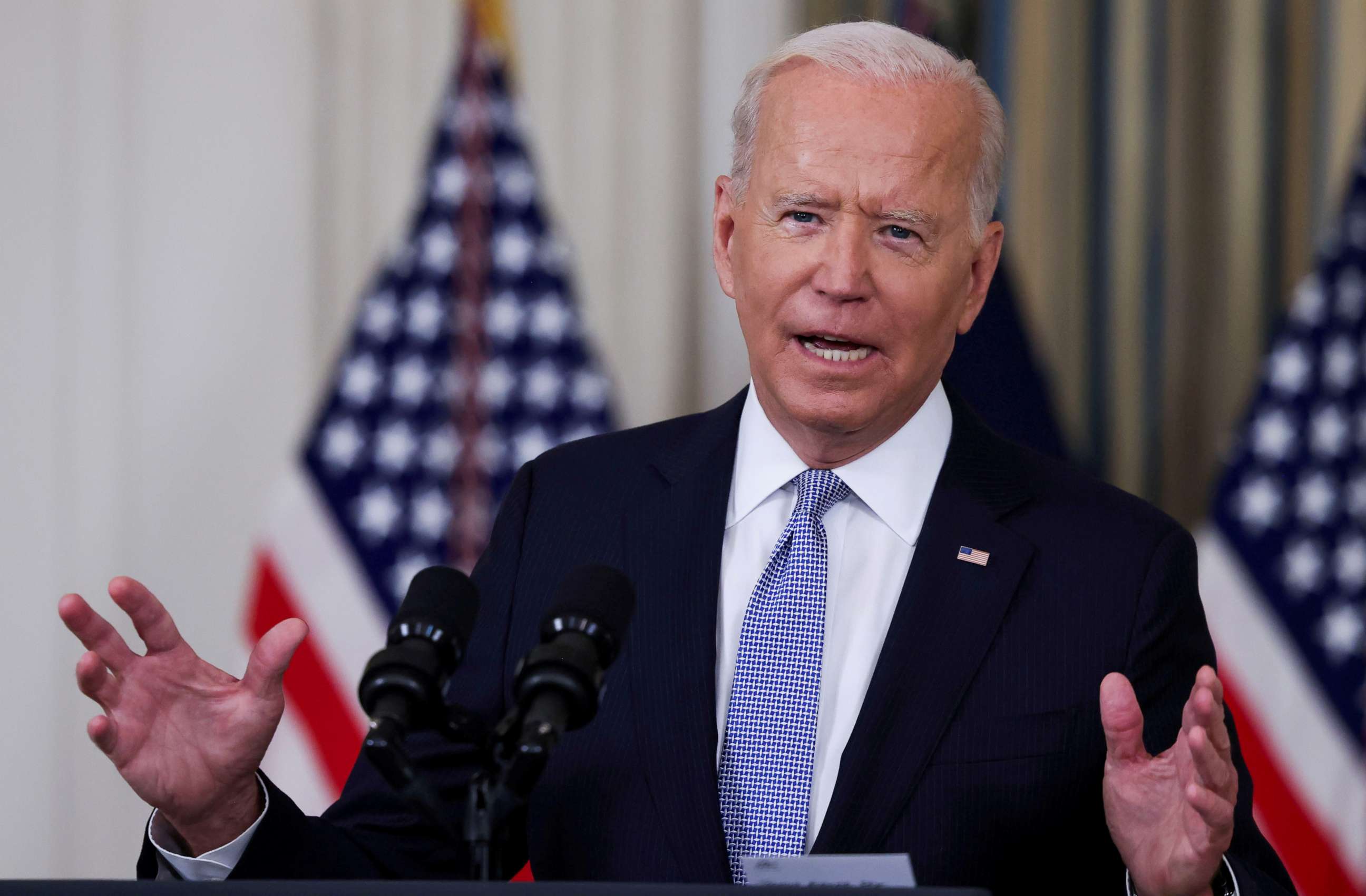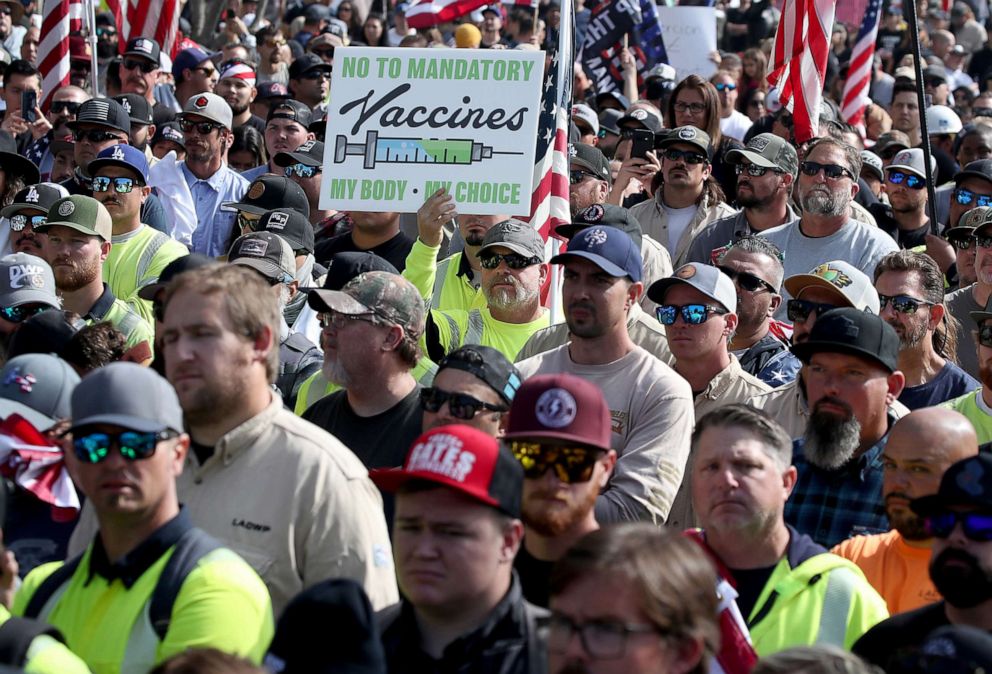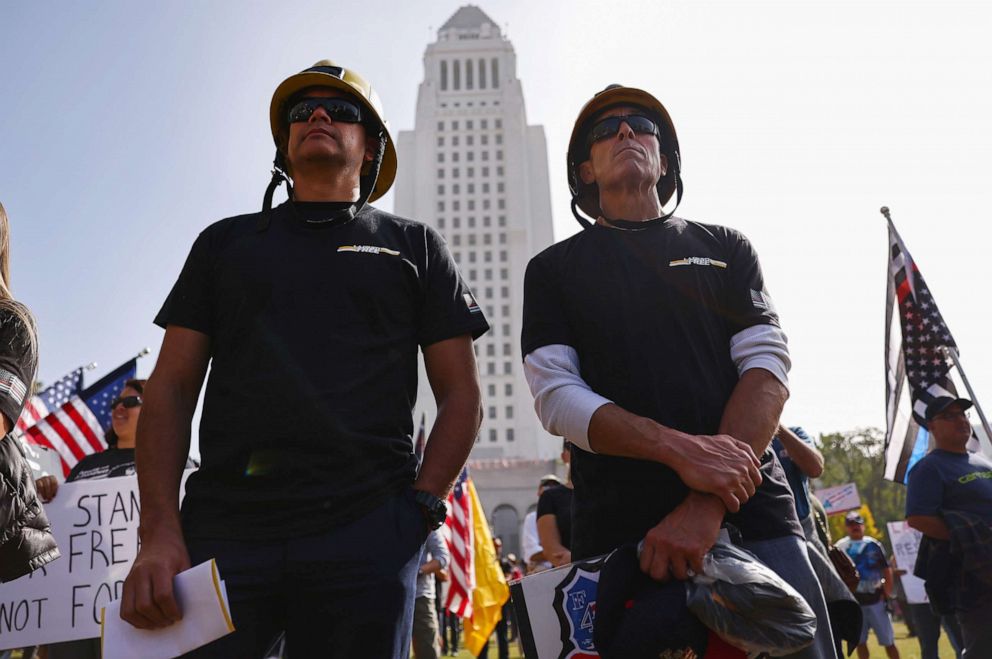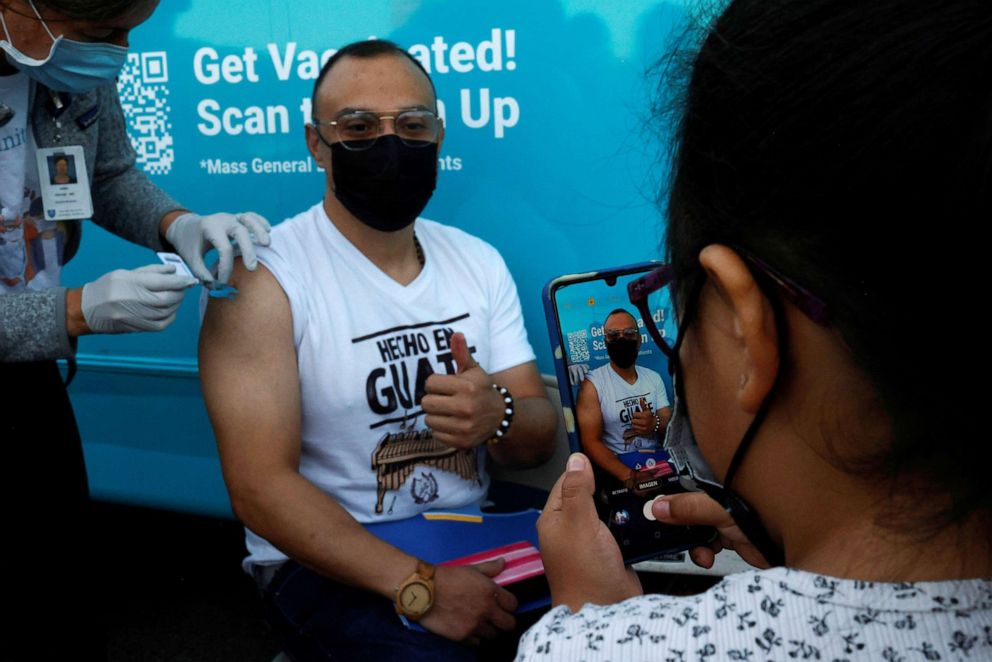Biden says mandates work. He's about to find out with his own civilian workforce.
Vaccine mandates face a major test with Nov. 22 deadline for federal workers.
Pamela Millwood isn't against getting vaccinated. But at the federal prison where she works in Jesup, Georgia, many of her coworkers are skeptical or downright opposed to getting a shot.
The result, she predicts, will be an exodus of some 30% to 40% of staff this holiday season, when prison employees will fall under a sweeping mandate that requires the nation's 2 million civilian workers to become fully immunized against COVID-19.
That type of mass resignation hasn't happened at other employers with mandatory vaccinations, such as Tysons Foods, United Airlines and New York City firefighters and teachers. The U.S. military, too, already has required COVID vaccines.
In each instance, personnel eventually complied, even after some raucous protests, with 90% or more of those workers now vaccinated.

But Millwood said she's not so sure that will be the case at the Jesup prison, where working conditions are particularly stressful and employees are living in a state with some of the lowest COVID vaccination levels despite high transmission levels.
"We've got some very strong-minded staff who are going to stand their ground on it," said Millwood, who also serves as the local union president in Jesup, some 60 miles south of Savannah. "And we're going to lose some staff over this."
After initially dismissing a vaccine mandate as the wrong approach, President Joe Biden this summer switched gears. Vaccination rates had stalled out earlier than anticipated, and COVID cases again began ticking upward. Children too young for the vaccine began crowding pediatric ICUs, and hospitals warned of potentially having to ration care as beds overflowed with mostly unvaccinated patients.
In September, Biden announced a new plan: Anyone working for or doing business with the federal government would have to get vaccinated, without the option of testing for the virus. Health care workers at facilities that accept federal money through programs like Medicaid and Medicare also would be required to get their shots. Additionally, private businesses with 100 or more employees would have to impose mandates of their own, although those workers would be given the option of weekly testing.
As the separate mandates face multiple lawsuits, Biden has argued that office spaces and assembly lines aren't safe without widespread vaccinations, and that it's up to employers to protect workers against COVID-19 the same as they would asbestos exposure or any other occupational hazard.

"I waited until July to talk about mandating because I tried everything else possible," Biden said last month at a CNN Town Hall. "The mandates are working."
According to the Centers for Disease Control and Prevention, unvaccinated people are six times more likely to test positive and 11 times more likely to die. When vaccinated people test positive, they also tend to recover and clear the virus more quickly, making them less contagious and protecting those around them.
Research also has found that "natural immunity" isn't enough. One study of 7,000 people hospitalized for COVID-19 across nine states found that unvaccinated people who had been previously infected still were five times more likely to be re-infected than those who were vaccinated.

Still, as the holiday season approaches and employers complain of a worker shortage, Biden's mandates are now at the forefront of a nationwide debate on whether the government is going too far.
Under Biden's plan, the estimated 2 million civilians who work for the federal government -- the vast majority of whom reside outside the Washington, D.C., area -- were supposed to have gotten their last shot by now in anticipation of a Nov. 22 deadline. The CDC considers a person "fully immunized" two weeks after their last dose.
How much of the federal workforce will meet that deadline remains to be seen. The White House won't release estimates yet because it insists workers still have time to report their vaccinations, even though guidance to the federal agencies has said disciplinary action could begin as early as this week.
Of particular concern are workers essential to national security and law enforcement, including the more than 50,000 Transportation Security Administration employees at airports tasked with screening an estimated 4 million air travelers over Thanksgiving.

As of last month, some 40% TSA workers remained unvaccinated. The White House and TSA haven't updated those figures, but did say Thanksgiving travel shouldn't be greatly affected because potential terminations won't be immediate.
If workers refuse a vaccination, they would be subject to an initial counseling session, followed by a warning, after which they'd be subject to termination.
But it's unclear how long that could take. Federal guidelines posted online suggest counseling efforts are limited to five days, to be followed by a 14-day suspension during which workers would be required to initiate getting a shot.
White House officials said agencies are being given discretion on how to implement the mandate, and they're insisting Biden's Nov. 22 deadline isn't a "cliff."
"The purpose, I think, most importantly, is to get people vaccinated and protected, not to punish them," Jeff Zients, the White House coordinator on COVID-19, said at a recent press briefing.
At the same time, the administration appears to be slow-walking the mandate while simultaneously arguing that getting vaccinated is urgent.
When asked why the deadline for federal workers can't be moved to Jan. 4 to align with the private sector, as suggested by union officials, a spokesperson for the Office of Management and Budget said: "The vast majority of the federal workforce wants to know they're safe in the workplace because their coworkers are vaccinated."
In Jesup, Millwood said protests and employee attrition are inevitable. Two coworkers already have left, stretching thinner an already strained staff, she said.
Millwood acknowledged that her husband agreed to get vaccinated only when faced with the mandate. She said she's still not sure about her coworkers.
"There are a lot of people," Millwood said, "who are absolutely either going to wait to the last minute, or are just [saying], 'You're going to have to fire me.' And that's just the way it is."
ABC News's Cheyenne Haslett contributed to this report.



